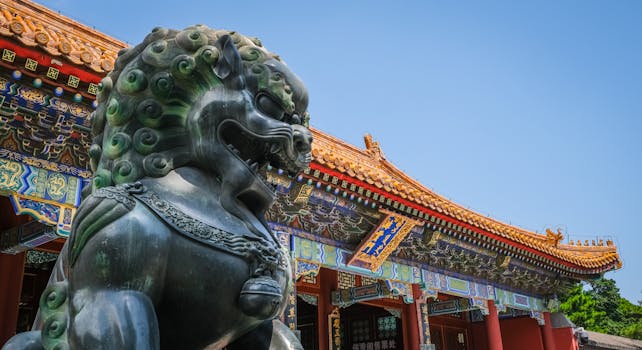China Promotes Authoritarian Governance in Developing World: Report

In recent years, China has been increasingly active in promoting its model of authoritarian governance in the developing world. A recent report highlights how Beijing is leveraging economic investments, technological exports, and diplomatic influence to encourage other nations to adopt similar governance structures. This article delves into the mechanisms China employs, the motivations behind its strategy, and the implications for global democracy.
Economic Investments as a Tool for Influence
China’s Belt and Road Initiative (BRI) is one of the most significant avenues through which it exerts influence. Launched in 2013, the BRI aims to enhance global trade and stimulate economic growth across Asia and beyond by developing infrastructure and broadening trade links.
- Infrastructure Projects: China has invested billions in infrastructure projects in countries like Pakistan, Kenya, and Sri Lanka. These investments often come with strings attached, such as favorable terms for Chinese companies and labor.
- Debt Diplomacy: Critics argue that China uses “debt diplomacy” to gain leverage over countries that are unable to repay loans, thereby increasing its political influence.
For instance, Sri Lanka had to lease its Hambantota Port to a Chinese company for 99 years after failing to repay Chinese loans. This has raised concerns about sovereignty and the long-term implications of such deals.
Exporting Surveillance Technology
Another significant aspect of China’s strategy is the export of surveillance technology. Chinese companies like Huawei and ZTE have been instrumental in providing the technological backbone for surveillance systems in various countries.
- Smart Cities: In countries like Zimbabwe and Ecuador, Chinese firms have helped build “smart cities” equipped with extensive surveillance capabilities.
- Social Credit Systems: Some nations are adopting elements of China’s social credit system, which monitors and rates citizens based on their behavior.
These technologies enable governments to monitor their populations more effectively, often at the expense of privacy and civil liberties. The adoption of such systems can lead to increased state control and reduced political freedoms.
Diplomatic and Political Influence
China also uses diplomatic channels to promote its governance model. Through forums like the Forum on China-Africa Cooperation (FOCAC) and the China-CELAC Forum, Beijing has been able to build strong political ties with developing nations.
- Training Programs: China offers training programs for foreign officials, focusing on governance, economic management, and law enforcement. These programs often emphasize the benefits of China’s authoritarian model.
- Media Influence: Chinese state media outlets are expanding their presence in developing countries, offering an alternative narrative to Western media and promoting China’s governance model.
For example, in Africa, China has established numerous Confucius Institutes and media partnerships to spread its influence. These efforts aim to create a favorable image of China and its governance model.
Case Studies: Ethiopia and Cambodia
Two countries that exemplify China’s influence are Ethiopia and Cambodia. In Ethiopia, Chinese investments have been crucial in developing infrastructure, but they have also come with increased political influence. The Ethiopian government has adopted some of China’s surveillance technologies and governance practices.
In Cambodia, Prime Minister Hun Sen has openly praised China’s model of governance. Chinese investments have bolstered his regime, allowing him to maintain a tight grip on power. The Cambodian government has also adopted Chinese-style internet censorship and surveillance techniques.
Implications for Global Democracy
The spread of China’s authoritarian model poses significant challenges to global democracy. As more countries adopt elements of this model, there is a risk of eroding democratic norms and human rights standards. The international community must grapple with how to respond to this trend and support democratic governance in the developing world.
Conclusion
China’s promotion of authoritarian governance in the developing world is a multifaceted strategy involving economic investments, technological exports, and diplomatic influence. While these efforts have brought economic benefits to some countries, they also pose significant risks to political freedoms and democratic norms. As China continues to expand its influence, the global community must remain vigilant and work to support democratic governance and human rights.




